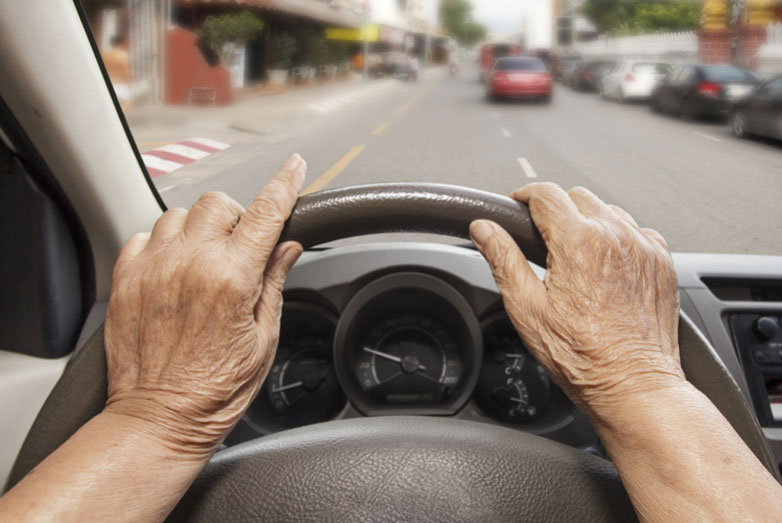“What age should senior citizens stop driving?” As a non-emergency medical transportation service specializing in senior transportation, we hear this question all the time. We wish there were an easy answer, but there is no one-age-fits-all remedy. Instead, age is simply one factor that influences ones’ ability to drive. Other factors to take into consideration include medical issues, health, and sound of mind.
A survey conducted by the AAA found that 90% of seniors in their study said that the loss of their driver’s license would create issues in their everyday life. We don’t have to tell you that seniors do not want to lose their license, who would?
According to the AAA Foundation for Traffic Safety, one in six Americans is 65 years or older. By the year 2020, it is estimated that there will be 40 million drivers over the age of 65 on American roadways. Clearly, age alone isn’t reason enough for a senior to lose their license. In fact, some studies point to the fact that younger drivers are often at an increased rate of automobile accidents compared to seniors.
So, At What Age Do Crash Rates Increase?
According to the Insurance Institute for Highway Safety, the rate of fatal crashes (per mile traveled) increase for drivers 70 and older. Accident rates peak for those 85 or older. Unfortunately, these numbers aren’t enough to indicate a specific age seniors should stop driving at. Instead, it’s all about a person’s ability to safely navigate an automobile. As drivers reach into their seventies and eighties, it is important for family members and loved ones to assess their driving abilities to ensure it’s still safe for them to be out on the road.
How to Assess Senior Driving Abilities
- First, simply take a ride with them and see how it goes. Do they stop at all signs? Do drivers honk at them, or do they navigate roadways without much issue? Can they navigate between different lanes without problem? Do they hit curbs? Drive too slow or too fast? These are all things to look out for.
- Have a conversation with them about what it’s like driving on the road. This can open your eyes to how they experience driving, and can alert you to issues you may otherwise not know about.
- Check over their car for signs of dings, dents, or even missing side mirrors. Small fender benders and little mishaps may signal dangerous driving.
- Talk to their doctor about overall health and if any current conditions may impact their ability to safely drive. Certain health conditions that can impact a senior’s ability to drive include:
-
- Dementia
- Stoke
- Hearing or vision impairments
- Arthritis
- Diabetes
- Parkinson’s disease
- Any disease that requires the use of medications that can impair driver capabilities, such as sleeping pills, anti-anxiety drugs, or narcotics.
- Look for the following warning signs that driving is potentially unsafe (not just behind the wheel, but in general):
- Delayed responses
- Easily distracted, disoriented or confused
- Nervous behind the wheel, loss of confidence
Consider Adding Driving Restrictions
Your loved one may not need to lose their license completely. Instead, it might be helpful to simply put some restrictions in place. For instance:
- Only drive during daylight hours, stay off the road after dark.
- Limit driving to the local area where they are very familiar with their surroundings and less likely to become lost or disoriented.
- Take backroads and avoid the freeway.
- Limit driver distractions by turning off the radio, switching phones to silent, etc.
A Ride You Can Always Depend On, Now That’s Stellar
Just because a senior can no longer drive doesn’t mean they can’t live their life to the fullest. Enrolling in senior classes that offer transportation to fun events can help keep their social life going. Plus, we offer reliable non-emergency medical transportation services for senior patients of all ages and mobility. We don’t just take seniors to the doctor, we offer safe and comfortable rides to just about anywhere—local or long distance.
Contact us today to get a quote for your next ride.

